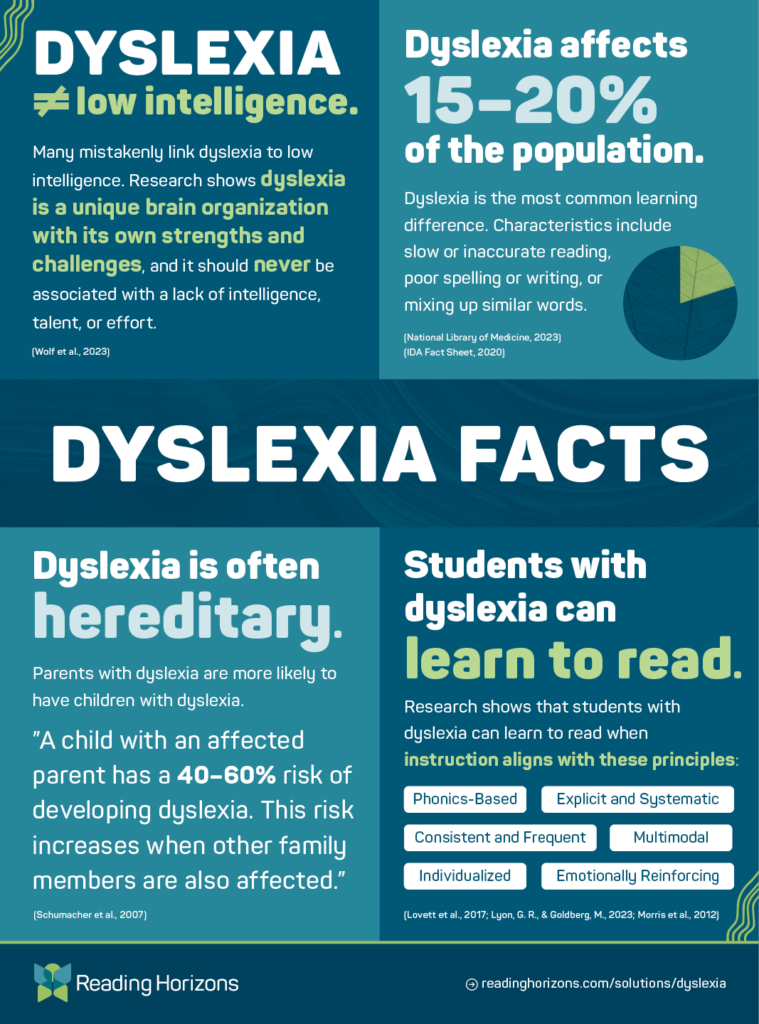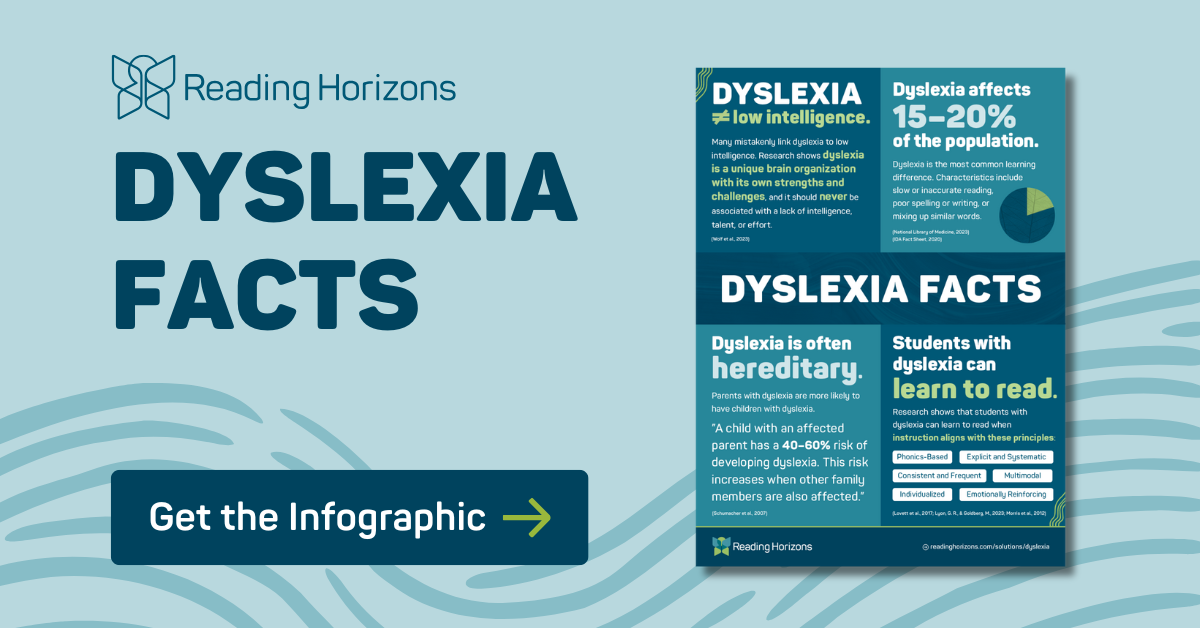
DYSLEXIA FACTS
Dyslexia ≠ low intelligence.
Many mistakenly link dyslexia to low intelligence. Research shows dyslexia is a unique brain organization with its own strengths and challenges, and it should never be associated with a lack of intelligence, talent, or effort. (Wolf et al., 2023)
Dyslexia affects 15–20% of the population.
Dyslexia is the most common learning difference. (National Library of Medicine, 2023) Characteristics include slow or inaccurate reading, poor spelling or writing, or mixing up similar words. (IDA Fact Sheet, 2020)
Dyslexia is often hereditary.
Parents with dyslexia are more likely to have children with dyslexia. “A child with an affected parent has a 40–60% risk of developing dyslexia. This risk increases when other family members are also affected.” (Schumacher et al., 2007)
Students with dyslexia can learn to read.
Research shows that students with dyslexia can learn to read when instruction aligns with these principles:
- Explicit and Systematic
- Phonics-Based
- Multimodal
- Individualized
- Consistent and Frequent
- Emotionally Reinforcing
(Lovett et al., 2017; Lyon, G. R., & Goldberg, M., 2023; Morris et al., 2012)
References
- Wolf, M., Gotlieb, R. J. M., Kim, S. A., Pedroza, V., Rhinehart, L. V., Tempini, M. L. G., & Sears, S. (2024). Towards a dynamic, comprehensive conceptualization of dyslexia. Annals of Dyslexia, 74(3), 303–324. https://psycnet.apa.org/record/2024-45803-001
- Schumacher J, Hoffmann P, Schmäl C, Schulte-Körne G, Nöthen MM. Genetics of dyslexia: the evolving landscape. J Med Genet. 2007 May;44(5):289-97. doi: 10.1136/jmg.2006.046516. Epub 2007 Feb 16. PMID: 17307837; PMCID: PMC2597981. https://pubmed.ncbi.nlm.nih.gov/17307837/
- Lovett, M. W., Frijters, J. C., Wolf, M., Steinbach, K. A., Sevcik, R. A., & Morris, R. D. (2017). Early intervention for children at risk for reading disabilities: The impact of grade at intervention and individual differences on intervention outcomes. Journal of Educational Psychology, 109(7), 889–914. https://doi.org/10.1037/edu0000181
- Lyon, G. R., & Goldberg, M. (2023). Scientific research and structured literacy. Perspectives.
- Morris, R. D., Lovett, M. W., Wolf, M., Sevcik, R. A., Steinbach, K. A., Frijters, J. C., & Shapiro, M. B. (2012). Multiple-component remediation for developmental reading disabilities: IQ, socioeconomic status, and race as factors in remedial outcome. Journal of Learning Disabilities, 45(2), 99–127. https://doi.org/10.1177/0022219409355472

